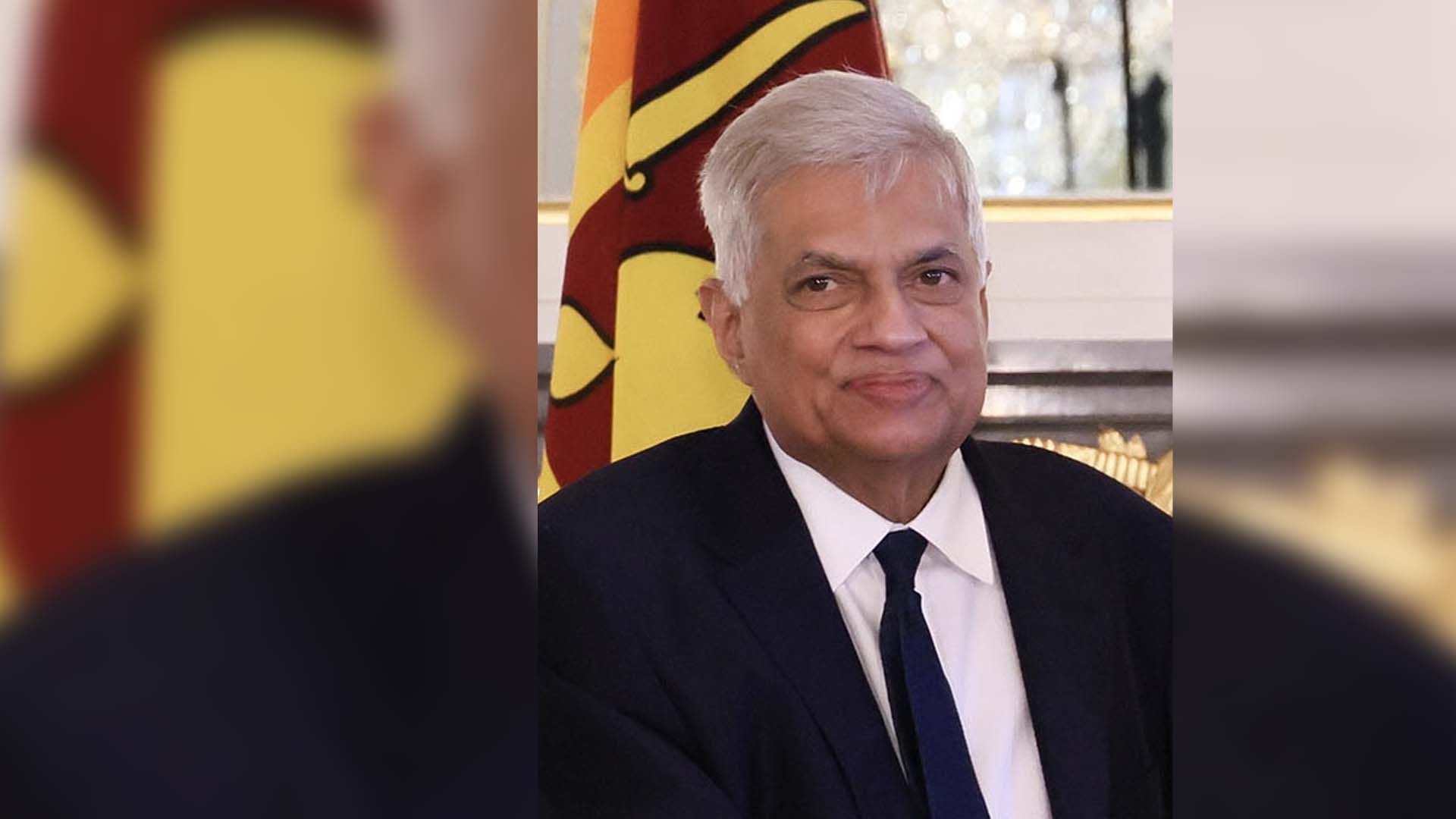President Wickremesinghe calls for legalising agreements with IMF
President Wickremesinghe calls for legalising agreements with IMF

- Country:
- Sri Lanka
Sri Lankan President Ranil Wickremesinghe has emphasised the importance of legalising agreements with the IMF to ensure there is no repeat of reversing decisions after agreeing with the global lender, which he said, represents the debt-trapped country's ''final opportunity'' for economic recovery.
Wickremesinghe’s remarks come barely three weeks after the International Monetary Fund (IMF) said it has reached a staff-level agreement with Sri Lanka for the next phase that would enable it access to USD 337 million from the nearly USD 3 billion bailout approved in 2023 for the island nation.
Two tranches of USD 330 million each were released in March and December 2023 even as the global lender has praised Colombo for its macroeconomic policy reforms, which it said, “are starting to bear fruit.” Wickremesinghe, also the finance minister, highlighted the country’s ''history of reversing decisions after agreeing to IMF programmes and stressed that this represents the nation’s final opportunity for economic recovery.'' President Wickremesinghe also underscored the importance of legalising the agreement with the IMF to ensure that its benefits can be realised for the people of Sri Lanka.
Wickremesinghe made these remarks while addressing a meeting with lawyers in Kandy, about 120 km northeast of Colombo, on Sunday. He also expressed plans to introduce a new legal framework geared towards modernisation across various sectors.
He sought the support of the legal community for these initiatives, emphasising the significance of their involvement in advancing these efforts, he was quoted as saying by the President's Media Division.
He highlighted the country’s history of reversing decisions after agreeing to IMF programmes and stressed that this – the IMF collaboration – represents the nation’s final opportunity for economic recovery.
In March, Transport Minister Bandula Gunawardena had echoed a similar sentiment.
“The previous 16 agreements with the IMF were all violated. It was after violating the agreements that the country went bankrupt. If we violate the agreement again even after bankruptcy, the country will not last. Besides killing each other, there will be no alternative. So, no matter how much we don’t like it, the government of Sri Lanka must take the country on the path of debt restructuring and in accordance with the IMF pact,” Gunawardena had then said.
Wickremesinghe and Gunawardena were perhaps referring to the fact that in April 2022, Sri Lanka declared its first-ever sovereign default since gaining independence from Britain in 1948 and the unprecedented financial crisis led the then-president Gotabaya Rajapaksa to quit office.
A statement from the President’s media division on Monday said, Wickremesinghe emphasised the importance of modernising the legal system to effectively implement the government’s programme aimed at fostering rapid economic growth in the country.
The President emphasised the collective responsibility of all citizens towards the country and underscored the need for making crucial decisions to address its economic challenges, it said.
“Wickremesinghe emphasised the importance of deciding whether to continue with the current economic system or to bolster the country’s economy by prioritising a competitive export-driven approach. President Wickremesinghe stressed the importance of avoiding future economic crises through strategic economic policies and initiatives,” the statement added.
Earlier in the month, on April 2, the World Bank’s bi-annual report said that Sri Lanka’s bankrupt economy is on the recovery path; projected a moderate growth of 2.2 per cent in 2024, and said, an estimated 25.9 per cent of Sri Lankans were living below the poverty line in 2023, an increase for the fourth year in a row.
“Sri Lanka’s economy is on the road to recovery but sustained efforts to mitigate the impact of the economic crisis on the poor and vulnerable are critical, alongside a continuation of the path of robust and credible structural reforms,” the report said.
(This story has not been edited by Devdiscourse staff and is auto-generated from a syndicated feed.)
ALSO READ
Britain's Battle with Deepfakes: Setting Standards in AI Detection
UPDATE 1-Ex-minister Mandelson quits Britain's Labour Party after new Epstein reports
Pressure mounts on Britain’s ex-prince Andrew to testify in Jeffrey Epstein case
Epstein files lead to resignation in Slovakia, calls in Britain for former prince to cooperate










